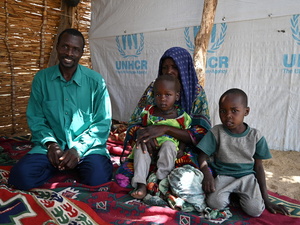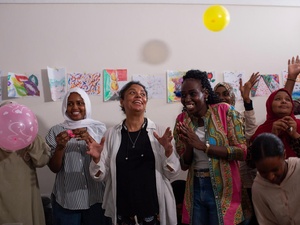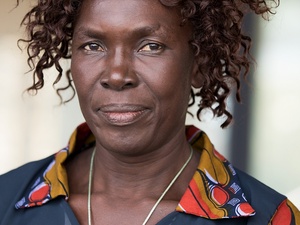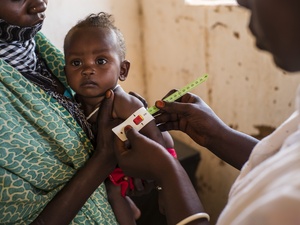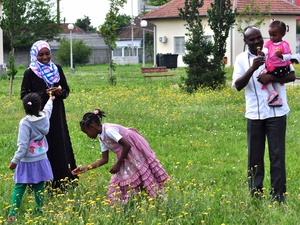In Sudan, planting trees eases environmental impact of hosting refugees
In Sudan, planting trees eases environmental impact of hosting refugees
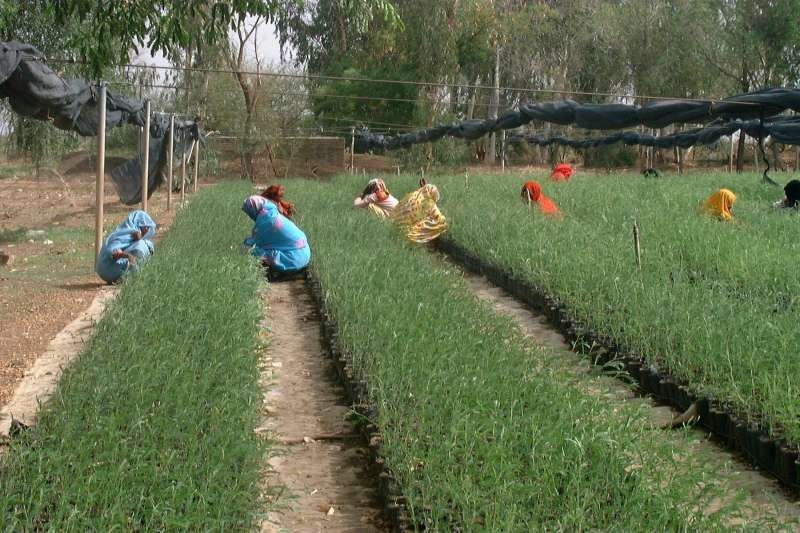
KASSALA, Sudan, July 1 UNHCR) – Drive a few hours north-east of Khartoum towards Kassala, near the Sudanese border with Eritrea, and you will come across one of the UN refugee agency's most striking achievements in the region – acre after acre of trees, stretching into the distance.
UNHCR has planted more than 19 million of them in a programme, launched a quarter-of-a-century ago, to green the denuded landscape of eastern Sudan. Species of acacia, neem, eucalyptus and many others, now cover almost 28,400 hectares of once barren land.
The refugee agency has been conducting the reforestation programme as part of its mandate to protect and assist refugees in eastern Sudan, including some who have been there for more than 40 years.
In the 1980s, more than a million refugees lived in the area. Today, 66,000 refugees from Ethiopia and Eritrea live in 12 camps in four eastern and central states; while an estimated 40,000 others reside in local communities. About 2,000 new asylum-seekers arrive at the border every month.
The presence of so many people living in the area and needing wood for cooking and shelter has taken a heavy toll on the environment. UNHCR launched the planting programme in 1985 in a bid to redress the balance and to heal the land generously provided by the host nation.
The first reforestation programme in refugee-affected areas was implemented between 1985 and 1996 for UNHCR by Enso, a Finnish non-governmental organization specializing in forestry. Sudan's Forests National Corporation (FNC), with UNHCR's support, has continued these activities since 1997.
The FNC provides materials, seeds and tools, as well as training and technical advice on agro-forestry projects that benefit refugees as well as the local community. Women carry out most of the projects, which combine environmental and self-reliance activities with peace-building.
By preserving trees and bushes, rather than cutting them down for temporary gain, they provide a sustainable source of fruit, medicine, shade and fodder. They also prevent erosion, a major concern in an area where the sands of the Sahara encroach further every year.
UNHCR funds reforestation and agro-forestry projects in and around the camps where its staff operate. At one, the Kilo 26 Refugee Camp, new trees and irrigated farmland cover 37 hectares.
The crops, including okra, tomato, cucumber, water melon, beans, onion, sorghum, groundnuts and fodder for livestock, are planted between lines of trees, which create a microclimate that helps increase production and provide vegetables in the off-season.
Locals and refugees ensure the project's success. Their nurseries produce 7,000-8,000 seedlings a year for fields or home gardens. The programme benefits 6,000 locals and 9,000 refugees. "The project has assisted us, through agro-forestry, in the cultivation of vegetables for household consumption and for sale in local markets," said one refugee.
The FNC has a training centre for the refugees at the Shagarab camp, where it teaches environmental awareness, tree planting, seedling production and alternative energy use. In addition, locally made mud stoves have reduced fuel consumption by 40 per cent.
"Engaging the refugees through this project in natural resource management has increased the refugees' sense of ownership and responsibility, while benefiting the environment and host communities," said Dualeh Mohamed, a UNHCR staff member involved in the programme.
By Karen Ringuette in Kassala, Sudan


